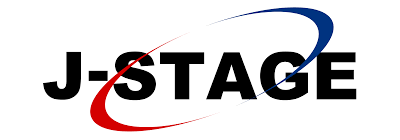Mass Spectrometry is a peer-reviewed, open access journal publishing articles in all areas of mass spectrometry. Published continuously online, the journal is fully indexed in J-STAGE and PubMed Central.
Mass Spectrometry welcomes submissions from around the world.
About the journal
Mass Spectrometry is an academic journal on both fundamentals and applications of mass spectrometry, owned and published by the Mass Spectrometry Society of Japan (MSSJ).
Readers
Anyone may access all articles in Mass Spectrometry from J-STAGE and PMC.
Contact
This site is operated by the Mass Spectrometry Society of Japan.
The Mass Spectrometry Society of Japan
c/o Academy Center, Yamabuki-cho 358-5, Shinjuku-ku, Tokyo 162-0801, Japan
TEL: +81-3-6824-9378
E-mail: mssj-post[at]as.bunken.co.jp
(Note : change [at] to @ when typing in address.)
Latest articles
Original ArticleNovember 11, 2025
Exploration of Yeast Species Suitable for Preparation of Stable Isotope–Labeled Internal Standards Extracts (SILIS)
Taisuke Seike, Kahar Prihardi, Chiaki Ogino, Fumio Matsuda
Isotope dilution mass spectrometry is a widely used method for measuring intracellular metabolite concentrations, relying on the ratio of peak areas between the target compound and its stable isotope–labeled internal standard. For metabolome analysis of microorganisms, comprehensive concentration measurements have been achieved through the preparation of stable isotope–labeled internal standard extracts (SILIS).
Original ArticleOctober 29, 2025
Algorithm for Selecting Organic Compounds to Verify the Resolution of Electron Ionization Mass Spectrometers
Valentin G. Tkachenko, Sergey V. Silkin, Alexandr V. Sakharov, Vasily A. Eliferov, Denis V. Kolesnik, Anastasia S. Konstantinova, Evgeniy A. Filatov, Ekaterina S. Shiryaeva, Stanislav I. Pekov, Igor A. Popov
The ion coalescence phenomenon complicates the evaluation of the effective resolution of Fourier-transform mass spectrometers. We propose an approach for confirming the resolution of an electron ionization Fourier-transform mass spectrometer using pairs of organic substances identified by automatically generated formula differences.
ReviewJune 18, 2025
Artificial intelligence (AI) has provided viable methods for retrieving, organizing, and analyzing mass spectrometry (MS) data in various applications. However, several challenges remain as this technique is still in its early, preliminary stages.
Featured articles
Original ArticleJuly 17, 2024
Direct ESI-MS of Ionic Liquids Using High-Pressure Electrospray From Large-Bore Emitters Made of Micropipette Tips
Takeshi Matsuda, Lee Chuin Chen
Electrospray ionization mass spectrometry of neat undiluted ionic liquid (IL) and the analysis of protein with the doping of IL were performed using high-pressure electrospray. The use of disposable micropipette tips as emitters eased the handling of viscous and easy-to-clog samples and improved the reproducibility of the measurement.
Original ArticleDecember 29, 2024
Atmospheric Pressure Mass Spectrometry Imaging Using Electrospray-Assisted Laser Desorption/Ionization with Gas Transportation through a Heated Tube and Minimal Sample Preparation
Riku Hirotani, Yuto Miyoshi, Varun Sendilraj, Hisanao Hazama
Mass spectrometry (MS) is a valuable tool that enables label-free analysis and the ability to measure multiple molecules. The atmospheric pressure MS imaging (MSI) method usually requires tedious sample preparation.
Original ArticleApril 11, 2023
Comprehensive Membrane N-Glycoproteomics Using Human Breast Cancer Cell Line Pairs
Daisuke Takakura, Haruka Yoshida, Shoko Ohashi, Nana Kawasaki
Aberrant glycosylation of membrane proteins is a hallmark of cancer and a useful molecular marker for the diagnosis of breast cancer (BC). However, the molecular mechanisms by which altered glycosylation affects the malignant transformations associated with BC are poorly understood. Accordingly, we performed comparative



